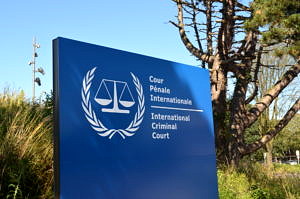International Criminal Law
 The term International Criminal Law unites two previously strictly separate fields. While International Law governs
The term International Criminal Law unites two previously strictly separate fields. While International Law governs
the relations between international law subjects – principally states –, Criminal Law only deals with the individual and the violation of elementary codes of conduct by the individual. Nevertheless, the subject matter of International Criminal Law can be appropriately designated by this term: it deals with individual violations against codes of conduct. The legal anchoring of these norms, as well as the foundation of the corresponding criminal norms, stem from International Law. Seen this way, International Criminal Law is Criminal Law arising from International Law. International Criminal Law norms can be classified according to the substantive law and to the procedural law and court organisations to which they relate.
Therefore, there are many active parties that we observe in the course of our research. The lists of relevant courts alone extends from the International Criminal Court to the UN Ad Hoc Tribunal for the Former Yugoslavia, the UN International Residual Mechanism for Rwanda, and various Courts with mixed national-international case-law, all the way to solely national courts with international criminal law jurisdiction. In Germany, these are the Higher Regional Courts (Oberlandesgerichte) and the Federal Court of Justice (Bundesgerichtshof).
Our research in the field of international criminal law focuses on the specific historical bases and traditions of this subject. We must constantly keep abreast of current political developments which, particularly in conflict or post-conflict situations, are often of great significance for processes modelled on judicial principles. The application of international criminal law is thus often accompanied by various other measures of transitional justice.
In this complex mix of interests, internationally recognised human rights serve as a standard. They constitute the basis of international criminal law because it sanctions the most severe violations of basic human rights. Conversely, human rights should also serve as the standard for the application of international criminal law and for evaluating the consequences of its application.